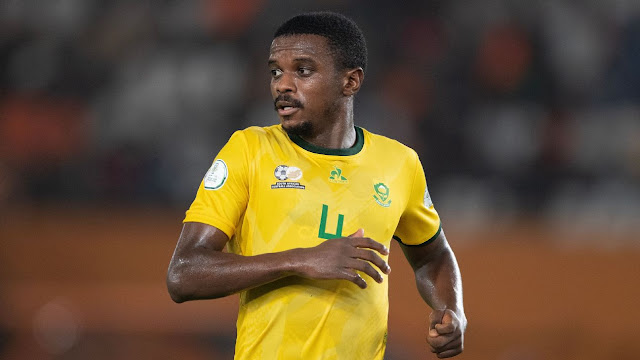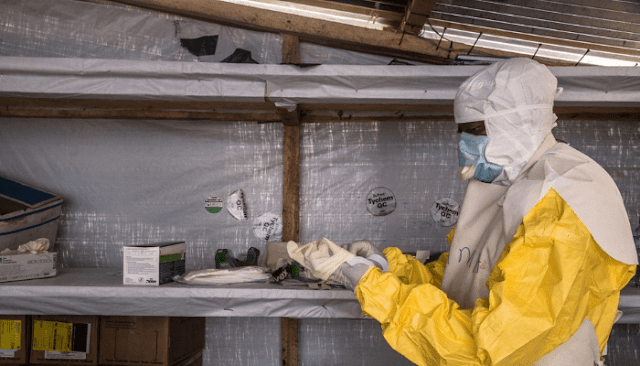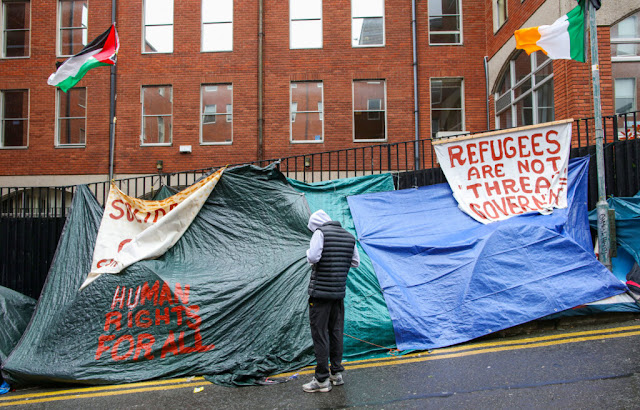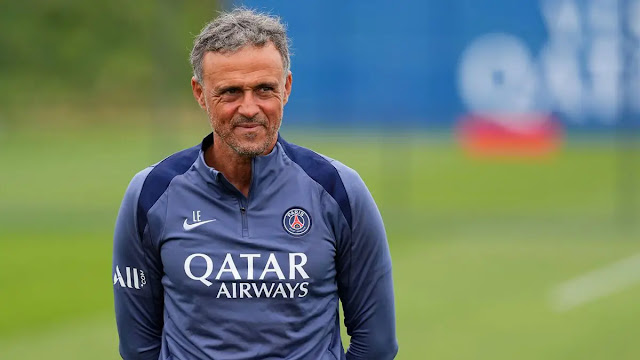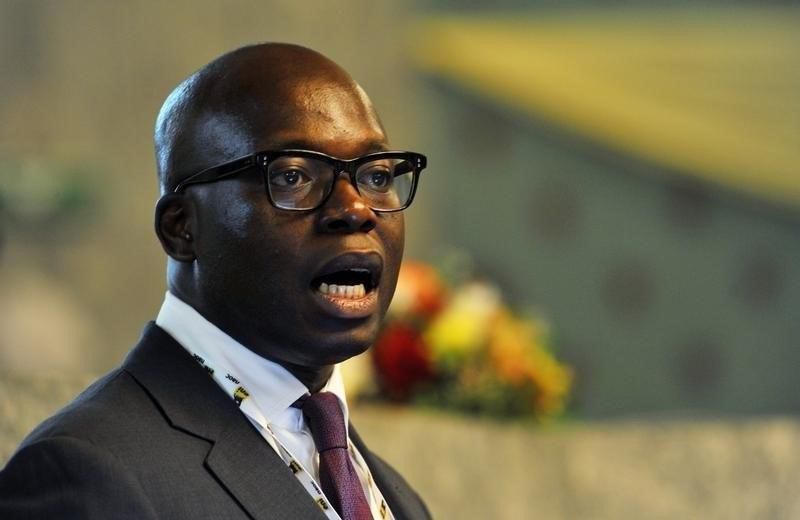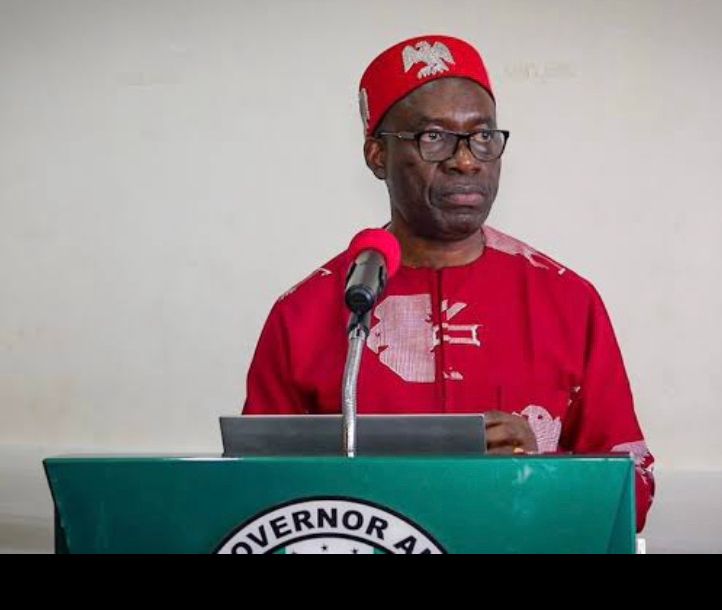In a dramatic escalation of tensions in African football, the Nigeria Football Federation (NFF) and the Benin Football Federation (FBF) have jointly lodged a formal complaint with the Fédération Internationale de Football Association (FIFA) regarding South Africa’s alleged use of an ineligible player in a crucial 2026 FIFA World Cup qualifying match. The controversy, which has sent shockwaves through the African football community, centers on a Group C qualifier match played in June 2025, where South Africa’s Bafana Bafana secured a 2-1 victory over Nigeria’s Super Eagles. The allegations, if substantiated, could have far-reaching consequences for the qualification campaign, potentially reshaping the standings in the highly competitive group.
The NFF and FBF have accused South Africa of fielding a player who did not meet FIFA’s eligibility criteria, citing irregularities in the player’s registration and documentation. While the specific identity of the player in question has not been officially disclosed, sources close to the matter suggest that the issue revolves around discrepancies in the player’s nationality or residency status, which may violate FIFA’s strict regulations on player eligibility. The two federations are demanding a thorough investigation and have called for severe sanctions, including the potential forfeiture of the match result, which could award Nigeria three points and significantly alter the dynamics of the qualification race.
This development has ignited a firestorm of debate across Nigeria, Benin, and South Africa, with fans, analysts, and football officials weighing in on the controversy. The issue has also raised broader questions about governance, transparency, and fairness in African football, as well as the effectiveness of FIFA’s regulatory framework in addressing such disputes. As the football world awaits FIFA’s response, the case has the potential to set a significant precedent for how eligibility disputes are handled in international competitions.
Background: The 2026 World Cup Qualifiers and Group C Dynamics
The 2026 FIFA World Cup, set to be hosted by the United States, Canada, and Mexico, is generating unprecedented excitement across Africa, with the continent allocated nine automatic qualification spots and one additional playoff berth. The Confederation of African Football (CAF) has organized the qualification process into nine groups of six teams each, with the group winners securing direct qualification and the four best second-placed teams advancing to a playoff round.
Group C, which includes Nigeria, South Africa, Benin Republic, Zimbabwe, Rwanda, and Lesotho, is one of the most competitive groups in the African qualifiers. Nigeria, a three-time African champion and perennial World Cup contender, is considered the group favorite, boasting a talented squad featuring stars like Victor Osimhen, Samuel Chukwueze, and Wilfred Ndidi. South Africa, with a rich footballing history and a strong domestic league, is a formidable rival, while Benin Republic has emerged as a dark horse under the guidance of coach Gernot Rohr, a former Super Eagles manager. Zimbabwe, Rwanda, and Lesotho add further unpredictability to the group, making every match a high-stakes affair.
The controversial match in question took place on June 7, 2025, at the Godswill Akpabio International Stadium in Uyo, Nigeria. South Africa’s 2-1 victory was a significant upset, as Nigeria had been expected to dominate at home. The result left South Africa atop Group C with seven points from three matches, while Nigeria lagged behind with four points. Benin Republic, with three points, also has a vested interest in the outcome, as a potential reallocation of points could boost their chances of finishing in the top two.
The allegations of an ineligible player surfaced shortly after the match, prompting the NFF and FBF to conduct their own investigations before formally escalating the matter to FIFA. The joint complaint reflects a rare show of unity between Nigeria and Benin, two nations with a complex history of rivalry and cooperation in football and beyond.
The Allegations: What Constitutes an Ineligible Player?
FIFA’s eligibility rules, outlined in Article 5 of the Regulations Governing the Application of the Statutes, are designed to ensure fairness and clarity in international competitions. A player is eligible to represent a national team if they meet one of the following criteria: they hold the nationality of the country, were born in the country, have a parent or grandparent born in the country, or have lived in the country continuously for at least five years after the age of 18 (for non-nationals). Additionally, players who have represented one country in a competitive international match cannot switch to another country unless specific exceptions apply, such as dual citizenship acquired before the initial cap.
The NFF and FBF allege that South Africa’s player violated these rules, though the exact nature of the violation remains under wraps pending FIFA’s investigation. Possible scenarios include falsified documentation, misrepresentation of residency status, or failure to meet the continuous residency requirement. In African football, such disputes are not uncommon, as the continent’s complex colonial history, migration patterns, and dual citizenship laws often create ambiguities in player eligibility.
For example, a player born in South Africa but raised in another country may require proof of continuous residency to represent Bafana Bafana. Alternatively, a player with dual citizenship may face scrutiny if their documentation is incomplete or if they previously represented another nation in a youth or senior competition. The lack of transparency from the South African Football Association (SAFA) has fueled speculation, with some reports suggesting that the player in question may have been a recent addition to the squad, possibly a naturalized citizen or a diaspora player recruited from Europe.
FIFA’s Role and Potential Consequences
FIFA’s Disciplinary Committee is tasked with investigating the complaint and determining whether South Africa violated eligibility rules. The process typically involves reviewing documentation, interviewing relevant parties, and cross-referencing records with national football associations and immigration authorities. If the allegations are substantiated, FIFA has the authority to impose a range of sanctions, including:
Forfeiture of the Match: The most severe penalty would be to declare the June 2025 match a 3-0 forfeit in favor of Nigeria, as per FIFA’s standard procedure for fielding an ineligible player. This would award Nigeria three points and adjust South Africa’s tally, potentially dropping them to second or third place in Group C.
Fines and Suspensions: SAFA could face financial penalties or suspensions for administrative lapses, such as failing to verify the player’s eligibility before the match.
Reprimands or Warnings: If the violation is deemed minor or unintentional, FIFA may issue a formal warning without altering the match result.
No Action: If FIFA finds no evidence of a violation, the original result will stand, and the complaint will be dismissed.
The outcome of the investigation will have significant implications for Group C. A forfeited match would give Nigeria a crucial boost in their quest for qualification, while Benin could also benefit from a reshuffling of points if they secure positive results in subsequent matches. For South Africa, a ruling against them could derail their campaign and spark domestic backlash, as Bafana Bafana fans have high hopes for a return to the World Cup after missing the 2022 tournament in Qatar.
Reactions from Stakeholders
The controversy has elicited passionate responses from football stakeholders across the three nations. In Nigeria, fans and analysts have expressed outrage, accusing South Africa of attempting to gain an unfair advantage. Social media platforms, particularly X, have been abuzz with discussions, with hashtags like #FIFAInvestigate and #JusticeForSuperEagles trending in Nigeria. Prominent figures, including former Super Eagles captain John Obi Mikel, have called for transparency and accountability, urging FIFA to act decisively to uphold the integrity of the game.
The NFF has defended its decision to escalate the matter, emphasizing its commitment to fair play. In a statement, NFF President Ibrahim Gusau said, “We have a responsibility to protect the interests of Nigerian football and ensure that the rules are followed. Our joint action with Benin Republic reflects our shared commitment to upholding the integrity of the World Cup qualifiers.” The NFF has also engaged legal experts to strengthen its case, signaling its determination to pursue the matter to its conclusion.
In Benin Republic, the FBF has echoed Nigeria’s sentiments, with President Mathurin de Chacus describing the situation as a “test for FIFA’s credibility.” Benin’s involvement in the complaint is particularly significant, as the country has historically played second fiddle to regional giants like Nigeria and Ghana. The collaboration with Nigeria underscores Benin’s growing influence in African football and their ambition to qualify for the World Cup for the first time since 2006.
South Africa, meanwhile, has adopted a more restrained stance, with SAFA issuing a brief statement acknowledging the complaint but refraining from detailed commentary. “We are confident in our processes and will cooperate fully with FIFA’s investigation,” the statement read. However, some South African fans have accused Nigeria and Benin of using the complaint as a tactic to distract from their own shortcomings in the qualifiers. The rivalry between Nigeria and South Africa, both on and off the pitch, has added a layer of intensity to the dispute, with historical tensions from past encounters, such as the 2019 Africa Cup of Nations semi-final, resurfacing in public discourse.
Historical Context: Eligibility Disputes in African Football
The current controversy is not the first time African football has grappled with eligibility disputes. In 2010, Equatorial Guinea was sanctioned by FIFA for fielding an ineligible player, Obdulio Nguema, in a World Cup qualifier against Nigeria. The match was awarded to Nigeria, boosting their qualification chances. More recently, in 2022, Zimbabwe was expelled from the World Cup qualifiers for failing to pay outstanding debts to a former coach, highlighting FIFA’s willingness to enforce its regulations in African football.
Eligibility disputes often arise due to the complexities of African migration and identity. Many African players, particularly those in the diaspora, hold dual citizenship or have lived in multiple countries, creating challenges for national federations in verifying eligibility. The lack of centralized databases and inconsistent documentation in some African countries further complicates the process, leading to occasional oversights or deliberate attempts to exploit loopholes.
Nigeria itself has faced scrutiny over player eligibility in the past. In 2013, the Super Eagles were accused of fielding an ineligible player in a youth tournament, though the case was dismissed due to insufficient evidence. These incidents underscore the need for robust verification systems and greater transparency in player registration processes across the continent.
Broader Implications for African Football
The Nigeria-Benin-South Africa dispute has sparked a broader conversation about governance and accountability in African football. The Confederation of African Football (CAF) has faced criticism for its handling of similar disputes in the past, with some analysts arguing that the organization lacks the capacity to enforce FIFA’s regulations consistently. The current case places additional pressure on CAF to support FIFA’s investigation and ensure that justice is served.
The controversy also highlights the growing competitiveness of African football, as nations vie for limited World Cup spots. With nine automatic berths available for 2026, compared to five in previous tournaments, African teams are more motivated than ever to secure qualification. However, disputes like this one risk undermining the spirit of fair play and could erode public trust in the qualification process.
For Nigeria, the outcome of the investigation could have significant implications for the Super Eagles’ campaign. A favorable ruling would boost team morale and fan support, potentially galvanizing the squad for the remaining qualifiers. Conversely, a dismissal of the complaint could fuel frustration and intensify pressure on coach Augustine Eguavoen to deliver results in upcoming matches.
Benin Republic, meanwhile, stands to gain both competitively and diplomatically. A successful outcome could elevate their status in African football and strengthen ties with Nigeria, a regional powerhouse. For South Africa, the stakes are equally high, as a sanction could disrupt their momentum and spark a domestic reckoning over SAFA’s administrative practices.
The Role of Fans and Media
The controversy has galvanized football fans across Africa, with social media serving as a battleground for competing narratives. In Nigeria, fans have launched online campaigns to pressure FIFA for a swift resolution, with some calling for a boycott of South African football events if the allegations are proven true. In South Africa, supporters have rallied behind Bafana Bafana, accusing Nigeria and Benin of sour grapes and deflecting blame for their own losses.
The media, particularly in Nigeria and South Africa, has played a significant role in shaping public opinion. The polarized nature of media coverage has also fueled misinformation, with unverified claims about the player’s identity and background circulating widely.
To counter misinformation, FIFA and CAF must prioritize transparent communication throughout the investigation. Clear updates on the progress of the case, along with factual information about the eligibility rules, will be crucial in maintaining public trust and preventing the dispute from escalating into a diplomatic or cultural conflict.
Looking Ahead: FIFA’s Response and Next Steps
As of September 6, 2025, FIFA has acknowledged receipt of the joint complaint from Nigeria and Benin and has promised a thorough investigation. The process is expected to take several weeks, with a decision likely to be announced before the next round of World Cup qualifiers in October 2025. In the meantime, all three nations are preparing for their upcoming matches, with Nigeria facing Zimbabwe, South Africa taking on Rwanda, and Benin playing Lesotho.
The outcome of the investigation will not only affect Group C but could also set a precedent for how FIFA handles similar disputes in the future. A ruling in favor of Nigeria and Benin would reinforce the importance of strict adherence to eligibility rules, while a decision in South Africa’s favor could embolden federations to take risks with player registrations.
Regardless of the outcome, the controversy has highlighted the passion and intensity of African football, as well as the challenges of navigating a complex and competitive qualification process. For Nigeria, Benin, and South Africa, the stakes extend beyond the pitch, touching on issues of national pride, regional rivalry, and the quest for global recognition at the 2026 World Cup.
Conclusion
The joint complaint by Nigeria and Benin Republic against South Africa over the alleged use of an ineligible player has thrust African football into the spotlight, raising critical questions about fairness, governance, and accountability. As FIFA investigates the allegations, the football world watches closely, aware that the outcome could reshape the dynamics of Group C and influence the broader landscape of African football.
For Nigeria, the dispute represents an opportunity to assert their dominance in the qualifiers and reclaim their position as a leading force in African football. For Benin, it is a chance to make history and strengthen their standing on the continental stage. For South Africa, it is a test of resilience and administrative competence, with the potential to either solidify their campaign or expose vulnerabilities in their system.
As the investigation unfolds, fans across the continent will be glued to their screens, awaiting FIFA’s verdict and hoping for a resolution that upholds the integrity of the beautiful game. In the meantime, the Super Eagles, Bafana Bafana, and the Cheetahs of Benin will continue their battle on the pitch, driven by the dream of representing Africa at the 2026 World Cup.


